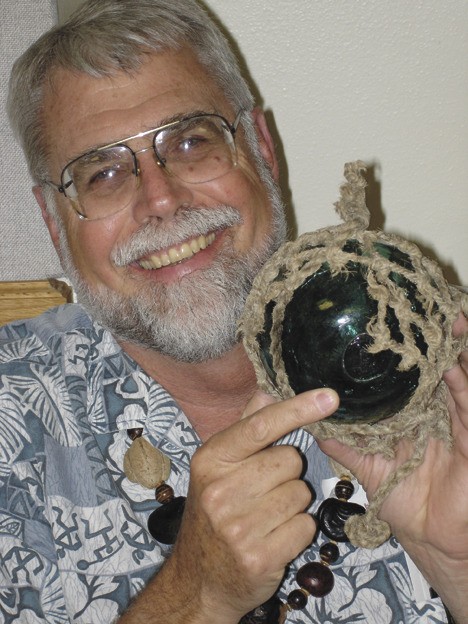“Plastic is far more deadly than oil,” says Curtis Ebbesmeyer, a world-renowned oceanographer with forty years of experience in the oil industry.
Ebbesmeyer will share his thoughts on the recent Gulf spill, and what the press isn’t saying, at a CrossRoads lecture Sunday, May 23, 2 p.m. at Orcas Center.
“They’re using one gallon of dispersant per ten gallons of oil,” he said. “What chemicals are in the dispersants? I don’t think the media is asking the hard questions.”
Based on historical data on ocean currents, Ebbesmeyer will predict where the oil will spread. And though crude oil can be devastating, he will explain why petroleum-derived plastics are a far larger threat to the world’s oceans.
Ebbesmeyer will talk about the circulation of ocean gyres and the wind-blown Great Pacific Garbage patch that bumped up against the west coast this March, dumping 50-year-old debris on area beaches.
His most perplexing recent mysteries include a 500-pound floating chunk of iron slag and a 25-year old survival suit with a complete human skeleton inside.
Ebbesmeyer welcomes questions, so if you want to know about the garbage-filled whale that washed up in West Seattle or what floating shoes with human feet still laced inside have to do with the 2,400 missing persons in British Columbia, ask away.
An oceanography PhD and author of Flotsametrics and the Floating World: How One Man’s Obsession with Runaway Sneakers and Rubber Ducks Revolutionized Ocean Science, Ebbesmeyer has studied flotsam spilled from cargo ships throughout his career, founding the Beachcombers’ and Oceanographers’ International Association in 1996.
Ebbesmeyer’s talk, “The Undiscovered Ocean: The Sea Surface Hidden in Plain View,” will conclude the spring lecture series. Tickets are $10 at Darvill’s Bookstore or the Orcas library, or at www.orcascrossroads.com. Advance purchase is recommended. For complimentary tickets, inquire at the Library or Senior Center.
Curtis Ebbesmeyer’s top two tips: What you can do:
• Every time you go to the beach, put a plastic bag in your pocket, fill it with bits and pieces of plastic, and recycle it.
• Urge local businesses to switch to biodegradable, compostable plastic made from vegetable sources – a technology that’s been available since the 1930’s.



